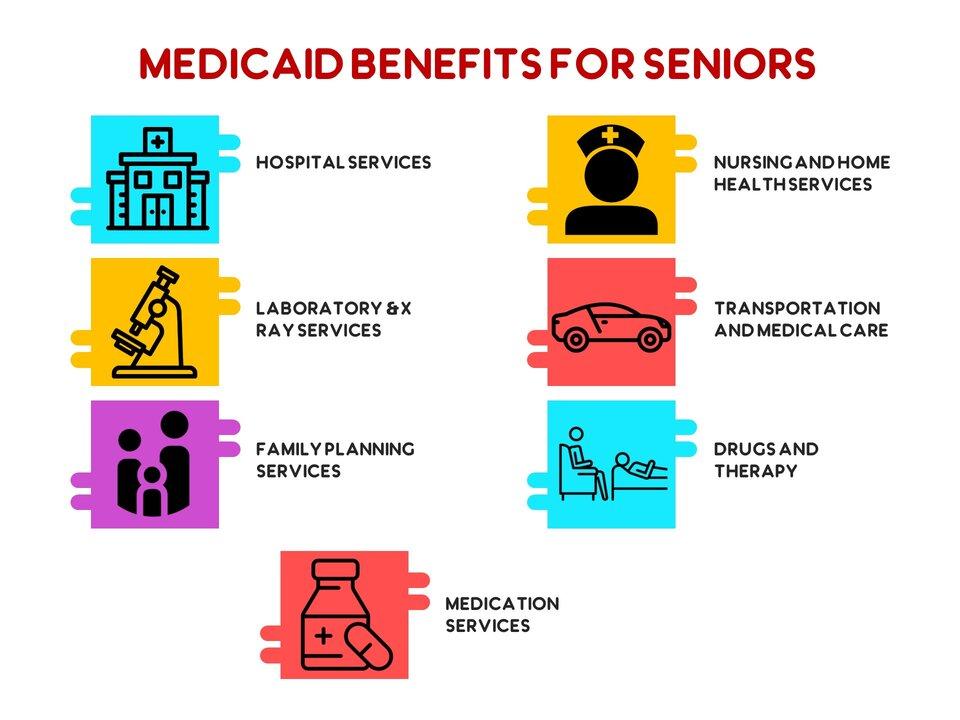Benefits of Medicaid
Medicaid is a government program that provides healthcare coverage for low-income individuals and families. In this article, we will explore the various benefits of Medicaid and how it can positively impact the lives of those who qualify for the program.
Improved Access to Healthcare
One of the primary benefits of Medicaid is that it improves access to healthcare for individuals who may not have been able to afford it otherwise. Medicaid covers a wide range of medical services, including doctor visits, hospital stays, prescription medications, and preventive care. This ensures that individuals can receive the necessary healthcare services to maintain their well-being.
Financial Relief
For many low-income individuals and families, healthcare expenses can be a significant burden. Medicaid helps alleviate this financial strain by covering the costs of medical care. By eliminating or reducing out-of-pocket expenses, Medicaid ensures that individuals can receive the care they need without worrying about the financial implications.
Comprehensive Coverage
Medicaid offers comprehensive coverage that includes a wide range of healthcare services. This includes primary care, specialist visits, hospitalization, laboratory tests, mental health services, and more. By providing such comprehensive coverage, Medicaid ensures that individuals have access to the necessary healthcare services to address their specific needs.
Preventive Care
Preventive care plays a crucial role in maintaining overall health and well-being. Medicaid recognizes this and covers a range of preventive services, such as vaccinations, screenings, and wellness exams. By promoting preventive care, Medicaid aims to detect and address health issues early on, leading to better health outcomes and reduced healthcare costs in the long run.
Long-Term Care Services
Medicaid also provides coverage for long-term care services, including nursing home care, home health services, and personal care assistance. This is particularly beneficial for elderly individuals or those with disabilities who require ongoing support and assistance with daily activities. Medicaid’s long-term care coverage ensures that individuals can receive the necessary care in a setting that suits their needs.
Children’s Health Coverage
Medicaid plays a vital role in providing health coverage for children from low-income families. It offers a comprehensive range of services tailored to meet the unique healthcare needs of children, including pediatric care, dental services, vision care, and mental health services. By ensuring children have access to quality healthcare, Medicaid contributes to their overall well-being and development.
Healthcare Provider Network
Medicaid works with a vast network of healthcare providers, including doctors, specialists, hospitals, and clinics. This extensive provider network ensures that individuals covered by Medicaid have access to a wide range of healthcare professionals and facilities. The network also helps to ensure timely access to care, reducing wait times and improving overall healthcare experiences.

Medicaid offers a multitude of benefits to individuals and families who qualify for the program. From improved access to healthcare and financial relief to comprehensive coverage and preventive care, Medicaid plays a crucial role in ensuring the well-being of those in need. By providing a wide range of healthcare services, including long-term care and children’s health coverage, Medicaid positively impacts the lives of millions across the country.
Frequently Asked Questions about Medicaid Benefits
1. What is Medicaid?
Medicaid is a government program that provides healthcare coverage to low-income individuals and families.
2. Who is eligible for Medicaid?
Eligibility for Medicaid varies by state, but generally, low-income individuals, pregnant women, children, and disabled individuals may qualify.
3. What are the benefits of Medicaid?
Medicaid offers a range of benefits including doctor visits, hospital stays, prescription medications, preventive care, and long-term care services.
4. How does Medicaid help with healthcare costs?
Medicaid helps to reduce healthcare costs by covering a significant portion of medical expenses, including hospital bills, doctor fees, and prescription drugs.
5. Can Medicaid be used for mental health services?
Yes, Medicaid covers mental health services such as therapy, counseling, and medication for mental illnesses.
6. Does Medicaid cover dental and vision care?
Medicaid coverage for dental and vision care varies by state, but many states provide at least some level of coverage for these services.
7. Can Medicaid be used for nursing home care?
Yes, Medicaid covers nursing home care for eligible individuals who require long-term care services.
8. Are prescription medications covered by Medicaid?
Yes, Medicaid covers a wide range of prescription medications, including both generic and brand-name drugs.
9. Can I have other health insurance along with Medicaid?
Yes, in some cases, individuals may have other health insurance in addition to Medicaid. Medicaid can help cover costs that are not covered by the primary insurance.
10. How do I apply for Medicaid benefits?
To apply for Medicaid benefits, you can contact your state’s Medicaid office or visit their website to find out the application process and required documentation.




